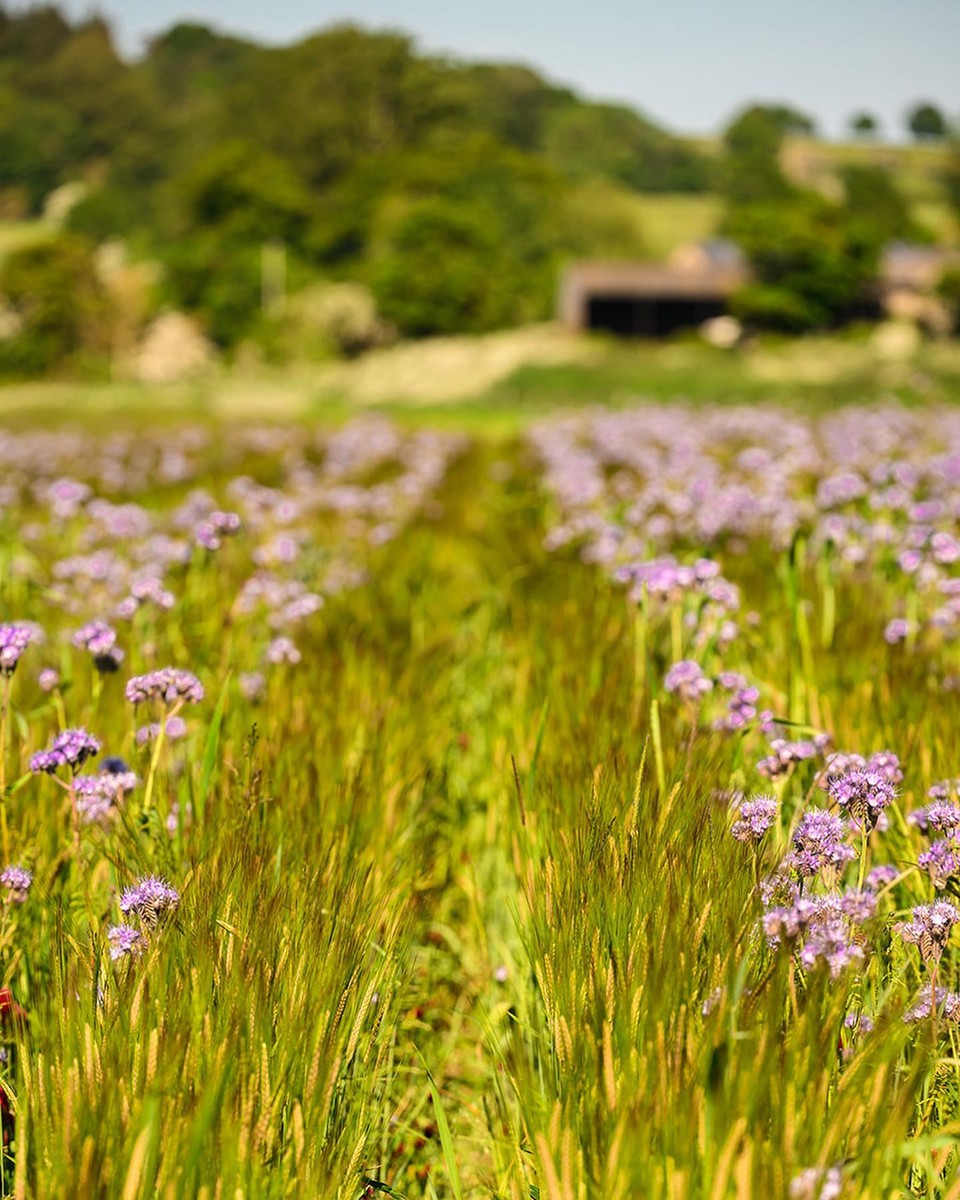New figures from Zero Carbon Forum and Wildfarmed highlight how hospitality can reduce carbon footprints and build resilience against failing food systems and price fluctuations
3.6 million tonnes of carbon could be saved by 2030 if every operator across the UK hospitality and brewing sector switched to regenerative flour and barley, according to new data from not-for-profit Zero Carbon Forum and the UK’s leading regenerative farming and food business, Wildfarmed. That’s the same as cancelling more than 5.5 million one-way flights between London and New York.
What’s the problem?
35% of the UK’s emissions come from the food and drink sector. Zero Carbon Forum’s benchmark data found that within that, flour and barley production is responsible for 2.5% of the hospitality and brewing sectors’ emissions. This means the move to flour produced through regenerative farming could play a critical role in helping the food and drink sector meet the demands of a 1.5C world.
The news comes at a time when extreme weather and record-breaking rain are putting our food systems at risk, with crops underwater, depleted harvests and higher costs for farmers, operators and consumers. Recent Met Office data shows a record amount of rainfall in England over the past 18 months.
How can regenerative farming help?
Zero Carbon Forum’s calculations found that if operators switched their wheat and barley to regenerative farming, by 2030 the sector could save over 3.6 million tonnes of carbon, by both reducing inputs and sequestering more carbon in the soil.
That’s because healthy soil can hold three times as much carbon as the atmosphere, but as soil health declines, so does its ability to absorb carbon.
Regenerative farming is all about restoring soil health by growing crops alongside companion crops, not adding pesticides to the growing crop, integrating livestock, and using observation and nutrition. This all puts more life-giving nutrients back into the soil and wheat while boosting biodiversity.
Wildfarmed, founded in 2018 by Andy Cato, George Lamb, and Edd Lees, is at the forefront of this movement. It has developed a community of 600+ farmers, restaurants and bakeries across the UK working together to fix our broken food system, partnering with leading retailers and brands such as Waitrose, M&S, ASK and Franco Manca.
As creators of the Wildfarmed Regenerative Standards, the UK’s first third-party audited regenerative standards for arable farmers, Wildfarmed grows wheat in a way that restores soil health and resilience, captures carbon and creates biodiverse fields full of life.

Edd Lees, co-founder at Wildfarmed said: “The hospitality industry uses an enormous amount of flour, made mostly by conventional farming. But a switch to regen farming means a switch to less carbon. Enabling both farmers and hospitality businesses to be part of a significant environmental change.
“There are early adopters in this sector leading the charge, experiencing how a regenerative supply chain significantly reduces their environmental impact and offers customers a better end product. Together, we can invest in the future of UK soil and, in turn, work towards the UK’s sustainability targets.”
Bob Gordon, Zero Carbon Forum Director added: “It can be easy to overlook the huge carbon reductions a simple ingredient switch can make, but it goes beyond that. If businesses source ingredients from regenerative farms, we will also see more resilient supply chains able to respond to extreme weather events, more biodiversity, and lower carbon emissions from farming.

“Investors and insurers are looking at organisations with robust regenerative agriculture transition strategies across their businesses and supply chains, which make them resilient now and in the future. It’s a business decision that can positively affect market valuation, make a difference to the bottom line and enhance reputation.”
This new research underscores how simple changes in hospitality supply chains can make a significant difference to the future resilience of our food system as well as businesses’ net zero targets.
Mitigating present and future emissions through a regenerative approach allows farmers to protect their crops and helps operators become more resilient against price fluctuations and supply chain disruptions, safeguarding food systems from the impacts of climate change.

Regenerative agriculture is the solution-based approach operators, including Zero Carbon Forum members Azzuri, Pizza Pilgrims and WSH are adopting to improve security and enable resiliency and protection.
Zero Carbon Forum has been working with Wildfarmed through its Marketplace directory which connects and showcases innovative sustainable suppliers to hospitality operators.
Zero Carbon Forum and Wildfarmed are urging operators to join their regenerative mission. For more information on how to make the transition to regenerative flour please visit: zerocarbonforum.com/market-place/regenerative-agriculture
